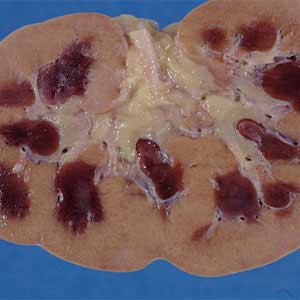Nephrotic syndrome in anantapur
A kidney condition characterized by excessive protein loss in the urine is known as nephrotic syndrome needing Nephrotic Syndrome treatment in Anantapur. This syndrome typically arises from damage to the small blood vessels within the kidneys, which are responsible for filtering waste and surplus water from the bloodstream. An underlying health issue frequently contributes to its development. Common symptoms include swelling around the eyes, as well as in the feet and ankles, foamy urine, and weight gain resulting from fluid retention. Treatment focuses on addressing the underlying conditions and may involve medications for blood pressure, diuretics, steroids, and various immunosuppressive agents.
Nephrotic syndrome at Nephrotic Syndrome Hospital in Anantapur encompasses a range of symptoms that can stem from multiple causes. In adults, it is most commonly linked to rare kidney diseases, although it can manifest in individuals of all ages, including children.
Congenital nephrotic syndrome

Congenital nephrotic syndrome is present at birth and typically leads to irreversible kidney failure between the ages of 2 and 8. This condition is hereditary, indicating that it is transmitted from parents to their offspring. Effective management of symptoms by kidney nephrosis doctor in Anantapur primarily involves adhering to the medication regimen prescribed by your healthcare professional. Additionally, it is advisable to follow a diet that includes suitable levels of potassium and protein while minimizing sodium, saturated fat, and cholesterol intake.
Dietary restrictions
Diet and nutrition do not play a direct role in causing or preventing nephrotic syndrome in adults. Nevertheless, individuals diagnosed with nephrotic syndrome may find that dietary modifications and suggestions from Nephrology doctor in Anantapur can alleviate certain symptoms.
To minimize swelling, it is advisable at Best Nephrology Hospital in Anantapur to restrict sodium intake, as the majority of sodium consumed typically originates from salt. Additionally, increasing fluid intake can also aid in reducing swelling.
Furthermore, lowering the consumption of saturated fats and cholesterol can be beneficial in managing hyperlipidemia. It is prudent to limit the intake of items such as full-fat dairy products, red and processed meats, cheese, fried foods, baked goods, and sugary treats.
Nephrotic syndrome can be diagnosed by your healthcare provider, Dr. M. Surendra Babu through urine analysis. These tests determine whether there is an excessive loss of protein in your urine. Treatment approaches depend on the specific symptoms, underlying causes, and the degree of kidney impairment. The symptoms associated with nephrotic syndrome are typically managed with medications. Additionally, a diuretic may be prescribed to alleviate swelling by facilitating the kidneys' removal of excess fluid from the bloodstream. In certain situations, your healthcare provider might also recommend medications to lower cholesterol levels or anticoagulants if a blood clot is present.
